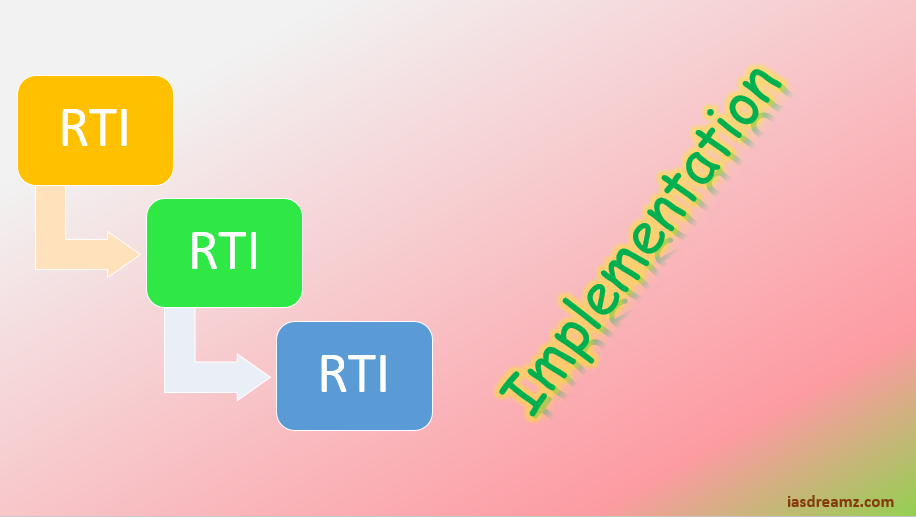The Implementation of RTI Act is divided into four articles for the sake of convenience of the students in understanding it step by step. This is the third series. In this article we will take up the topic of Implementation of RTI Act capacity building and awareness generation.
The below are the Rights and Obligations under the RTI Act:
- Information Commissions
- Information Officers and Appellate Authorities.
II. INFORMATION AND RECORD-KEEPING:
- Suo motu declaration.
- Public Interest Disclosure.
- Modernizing record keeping.
III. CAPACITY BUILDING AND AWARENESS GENERATION. (We are here)
IV. CREATION OF MONITORING MECHANISMS.

RTI Act capacity building and awareness generation
Capacity Building and Awareness Generation: Training programmes
The mindset of the government functionaries, wherein secrecy is the norm and disclosure the exception, would require a revolutionary change.
Such a change would also be required in the mindset of citizens who traditionally have been reluctant to seek information.
The Commission’s own experience in seeking information from select public authorities reveals that even some PIOs are not conversant with the key provisions of the Act.
The Information Commissioner’s Office in the United Kingdom has published an ‘Awareness Guidance’ series to assist public authorities and, in particular, staff who may not have access to specialist advice about some of the issues, especially exemption provisions. This practice may also be adopted in India.
Awareness generation:
In order to achieve the objectives of the Act it would be necessary that citizens become aware of their entitlements and the processes required to use this right to improve the quality of governance.
Awareness generation so far has been largely confined to government advertisement in print media.
An effective awareness generation campaign should involve multimedia efforts including street plays, television spots, radio jingles, and other mass communication techniques.
These campaigns could be effectively implemented at low cost, once committed voluntary organizations and corporates with creativity, passion and professionalism are involved.
Section 26 of the Act states that the appropriate government may develop and organize educational programmes to advance the understanding of the public, in particular of disadvantaged communities as to how to exercise the rights contemplated under the Act.
It has also been mandated that the appropriate governments shall within 18 months from the commencement of the Act, compile a guide containing such information in a simple and comprehensible manner.
Commission feels that this should be done at the earliest as non-availability of such guide is proving to be a hurdle in generation of awareness about the Act.
During field visits conducted by the Commission it was noted that awareness level about this Act among both members of the public and public authorities, particularly at the sub-district and panchayat levels is very low.
Recommendations:
(i) Training programmes should not be confined to merely PIOs and APIOs. All government functionaries should be imparted atleast one day training on Right to Information within a year. These training programmes have to be organized in a decentralized manner in every block. A cascading model could be adopted with a batch of master trainers in each district.
(ii) In all general or specialized training programmes, of more than 3 days duration, a half-day module on Right to Information should be compulsory.
(iii) Awareness campaigns may be entrusted to credible non-profit organizations at the State level. They should design a multimedia campaign best suited to the needs, in the local language. The funds earmarked could be utilized for this purpose.
(iv) Appropriate governments should bring out guides and comprehensible information material within the prescribed time.
(v) The CIC and the SICs may issue guidelines for the benefit of public authorities and public officials in particular and public in general about key concepts in the Act and approach to be taken in response to information requests on the lines of the Awareness Guidance Series referred to above.
References: